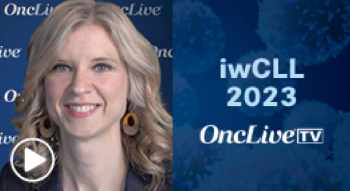
Danielle M. Brander, MD, discusses the primary analysis of the phase 1/2 TRANSCEND CLL 004 trial in patients with relapsed/refractory chronic lymphocytic leukemia or small lymphocytic lymphoma.

Your AI-Trained Oncology Knowledge Connection!


Danielle M. Brander, MD, discusses the primary analysis of the phase 1/2 TRANSCEND CLL 004 trial in patients with relapsed/refractory chronic lymphocytic leukemia or small lymphocytic lymphoma.
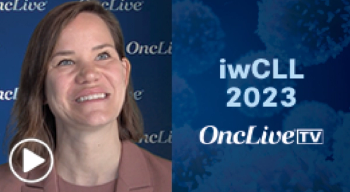
Catherine C. Coombs, MD, discusses the feasibility of switching from treatment with a covalent BTK inhibitor to a BCL-2 inhibitor vs a different covalent BTK inhibitor in patients with chronic lymphocytic leukemia or small lymphocytic lymphoma treated in a real-world setting.

Administration of acalabrutinib to patients with chronic lymphocytic leukemia with or without cardiovascular disorders at baseline results in a numerically decreased incidence of overall treatment-related cardiac toxicities and a comparable safety profile vs comparator CLL therapies such as ibrutinib.
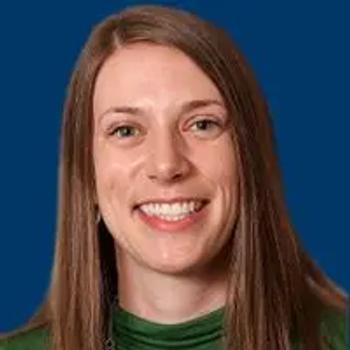
Treatment with single-agent venetoclax led to prolonged disease response in patients with chronic lymphocytic leukemia who had relapsed or become refractory to prior B-cell receptor inhibitors including ibrutinib and idelalisib, according to findings from a phase 2 study.

The undetectable minimal residual disease ate achieved with bendamustine followed by obinutuzumab, acalabrutinib, and venetoclax increased as the regimen was continued as maintenance treatment in patients with relapsed or refractory chronic lymphocytic leukemia.

Treatment with subcutaneous epcoritamab-bysp elicited rapid and durable responses, including an encouraging complete response rate, and manageable safety in high-risk patients with relapsed/refractory chronic lymphocytic leukemia.

Patients with chronic lymphoctyic leukemia treated with pirtobrutinib monotherapy experienced comparable objective response rates regardless of acquired BTK mutation and a decrease or clearance of BTK cysteine 481 clones despite the emergence of non-C481 clones or other less common mutations during or near the time of progression.

Patients with relapsed/refractory chronic lymphocytic leukemia achieved sustained progression-free survival and overall survival benefit after treatment with fixed-duration venetoclax plus rituximab vs bendamustine plus rituximab, according to data from the phase 3 MURANO trial.
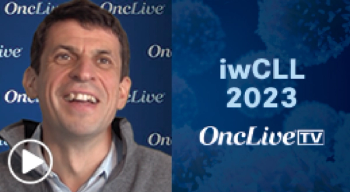
Alexey Danilov, MD, PhD, discusses the investigation of BTK degraders in the treatment of chronic lymphocytic leukemia.
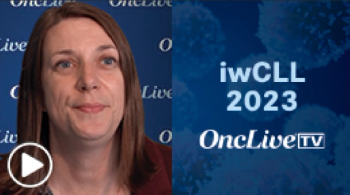
Jennifer A Woyach, MD, discusses the prevalence of recurrent genomic alterations in apoptotic machinery in patients with previously treated chronic lymphocytic leukemia who were refractory to B-cell receptor pathway inhibitors.
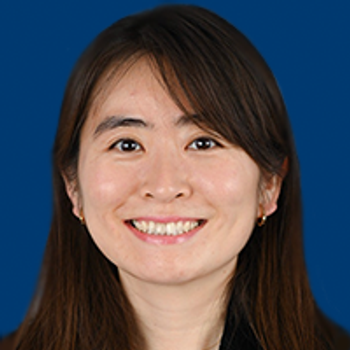
Patients with chronic lymphocytic leukemia who experience disease progression during treatment with either covalent or noncovalent BTK inhibitors displayed a higher frequency of BTK mutations in L528W as well as RAS/RAF/MAPK pathway alterations, indicating that these alterations may play a role in the development of BTK inhibitor resistance.
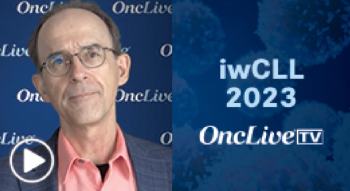
Jan Joseph Melenhorst, PhD, discusses the evolving understanding of the use of CAR T-cell therapies in the treatment of patients with chronic lymphocytic leukemia.
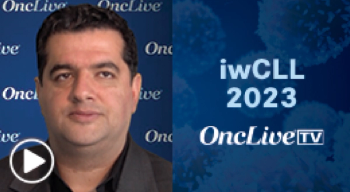
Mazyar Shadman, MD, MPH, discusses preliminary long-term findings from the evaluation of zanubrutinib in previously treated patients with chronic lymphocytic leukemia or small lymphocytic lymphoma who were intolerant to ibrutinib and/or acalabrutinib.

The duration of treatment with the combination of venetoclax and ibrutinib could be guided by both toxicities and minimal residual disease kinetics in previously untreated patients with intermediate-risk chronic lymphocytic leukemia, according to interim results from the phase 2 ERADIC trial.

Stable peripheral disease levels lasting 12 months were reported in patients with treatment-naïve chronic lymphocytic leukemia following 6 years of continuous treatment with ibrutinib.
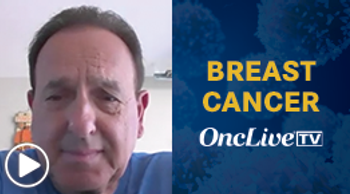
Bruce Haffty, MD, MS, discusses the feasibility of utilizing preoperative radiation boost in patients with breast cancer based on initial results from a phase 2 trial.

Administration of stereotactic ablative body radiotherapy to oligoprogressive lesions delayed a change in systemic therapy in patients with estrogen receptor–positive/HER2-negative breast cancer enrolled to the prospective phase 2 AVATAR trial.
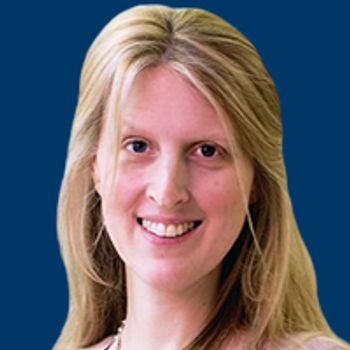
Treatment with reduced-dose or partial-breast radiotherapy sustained long-term safety and elicited similar rates of ipsilateral breast tumor relapse compared with whole-breast radiotherapy in patients with early-stage breast cancer.
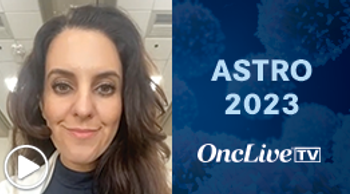
Asal Rahimi, MD, MS, discusses initial efficacy results from the expanded cohort of a phase 1 dose-escalation study (NCT04040569) evaluating pre-operative, single fraction stereotactic ablative radiation in early-stage, hormone receptor–positive breast cancer.
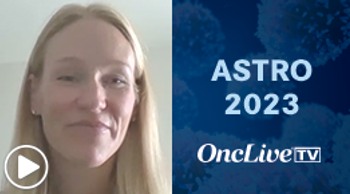
Melissa O'Neil, MRT(T), discusses findings from the randomized phase 2 Diagnostic CT-Enabled Radiation Therapy trial of palliative radiation therapy.

Ablative preoperative stereotactic partial breast irradiation plus endocrine therapy was safe at a single fraction of 34 Gy and generated pathological complete responses and near complete responses in patients with early-stage, estrogen receptor-positive breast cancer.
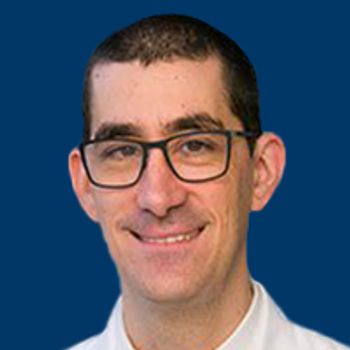
Daily adaptive radiotherapy with 1-mm planning target volume margins is feasible in patients with head and neck squamous cell carcinoma and was associated with improved dosimetric parameters compared with standard radiotherapy.

The use of diagnostic CT-based planning lowered the median time in treatment centers for patients with cancer who underwent diagnostic CT scan and palliative radiation therapy.
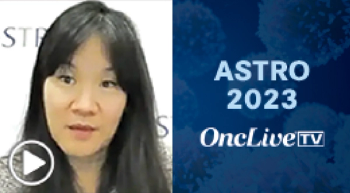
Julia S. Wong, MD, discusses findings from data presented on patient-reported toxicity results from the randomized trial of fractionation following breast reconstruction in patients with breast cancer.
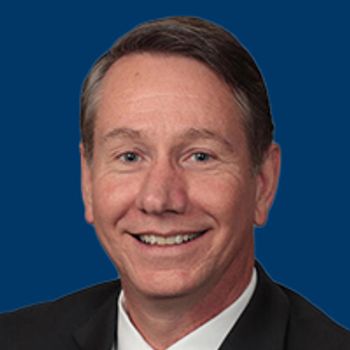
Immunotherapy has become a valuable tool for the treatment of patients with various types of lymphomas because of its ability to specifically target cancer cells, particularly those in blood cancers.
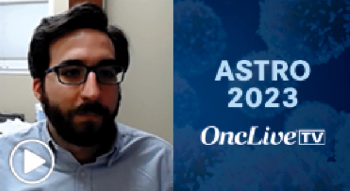
Matthew Pierre Deek, MD, discusses the significance of pretreatment immune cell infiltration in patients with muscle-invasive bladder cancer who had been treated with definitive chemoradiation.
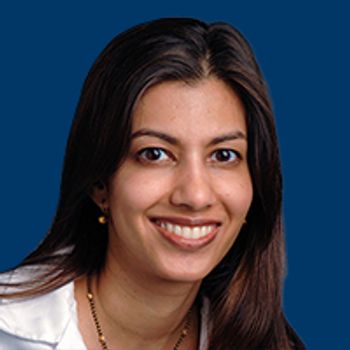
Patients with breast cancer who received hypofractionated postmastectomy radiotherapy experienced similar toxicities vs those who received conventionally fractionated postmastectomy radiotherapy, according to a presentation shared at the 2023 American Society for Radiation Oncology Annual Meeting.
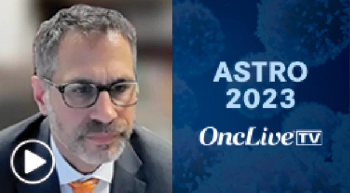
Bradford (Brad) S. Hoppe, MD, MPH, discusses the rationale for investigating consolidative radiotherapy in place of autologous stem cell transplant in patients with low-risk, relapsed/refractory classic Hodgkin lymphoma who have been previously treated with nivolumab plus brentuximab vedotin, as investigated in the phase 2 CheckMate 744 study, as well as key findings from this trial.
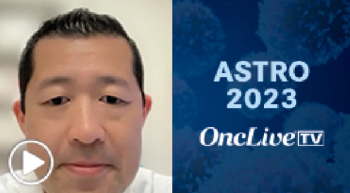
Michael Chuong, MD, FACRO, discusses patterns of locoregional recurrence following guided radiation therapy in pancreatic cancer.
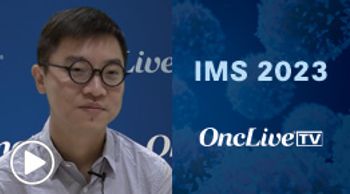
Jiye Liu, PhD, discusses epigenetic regulation of CD38/CD48 in multiple myeloma.